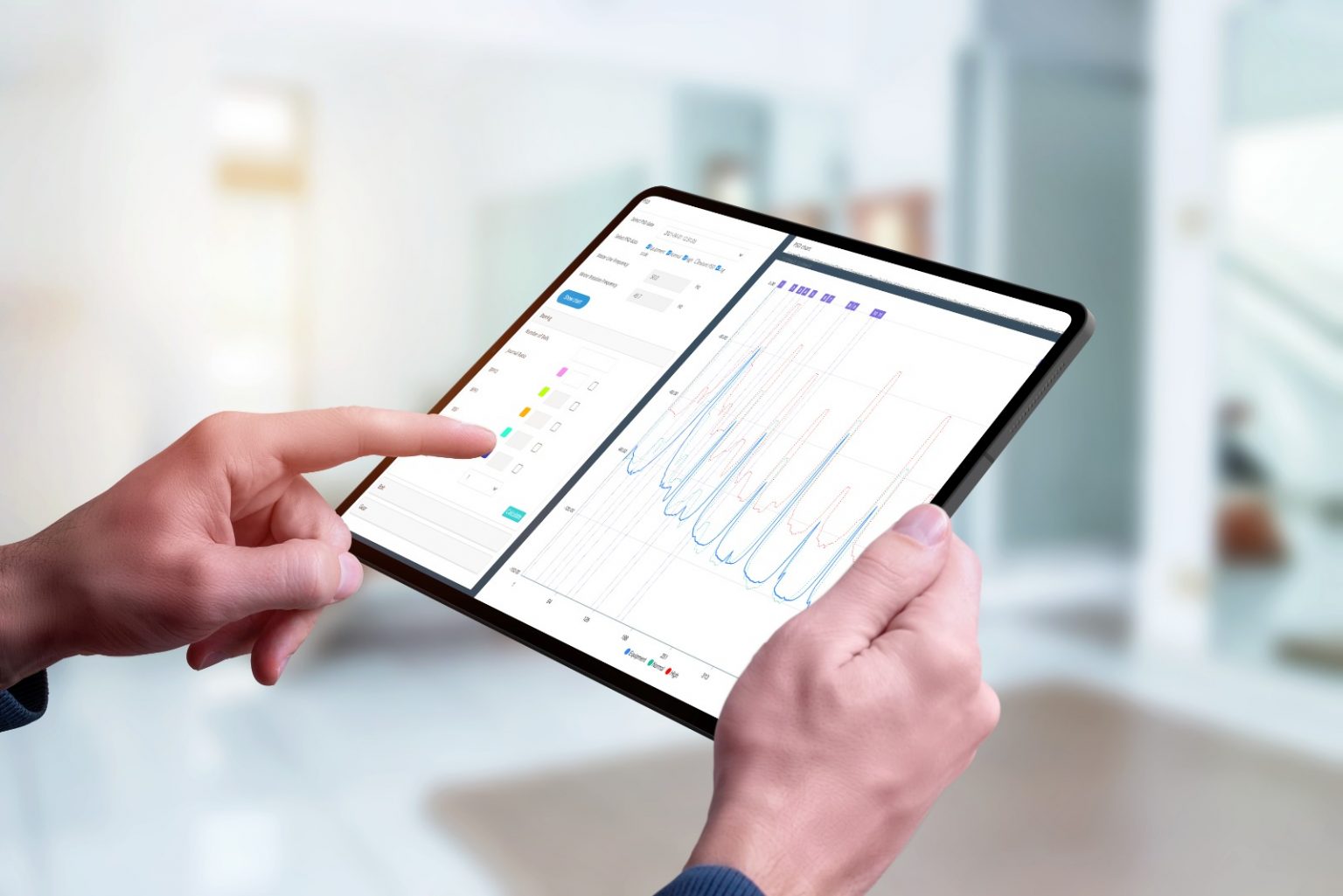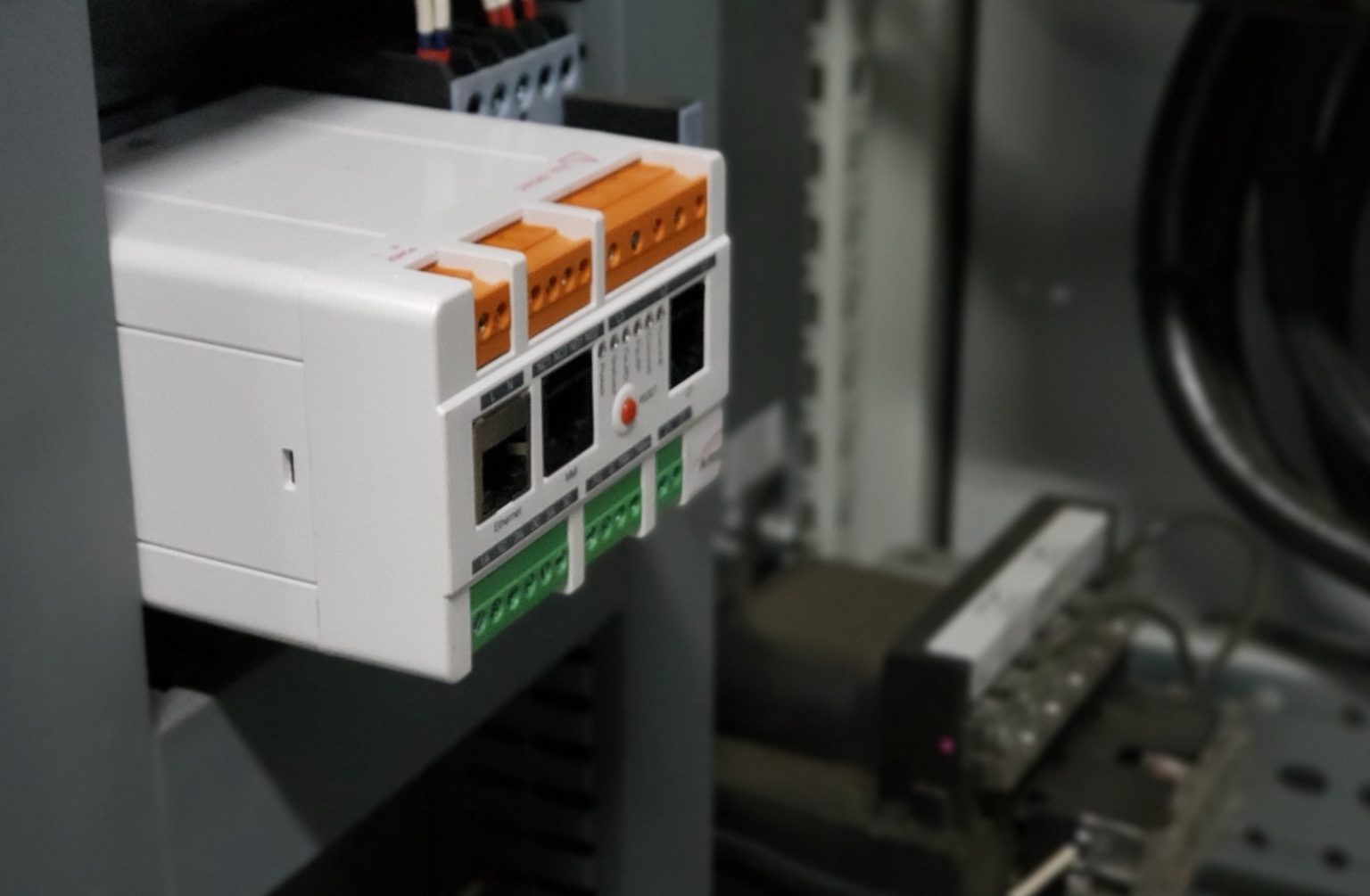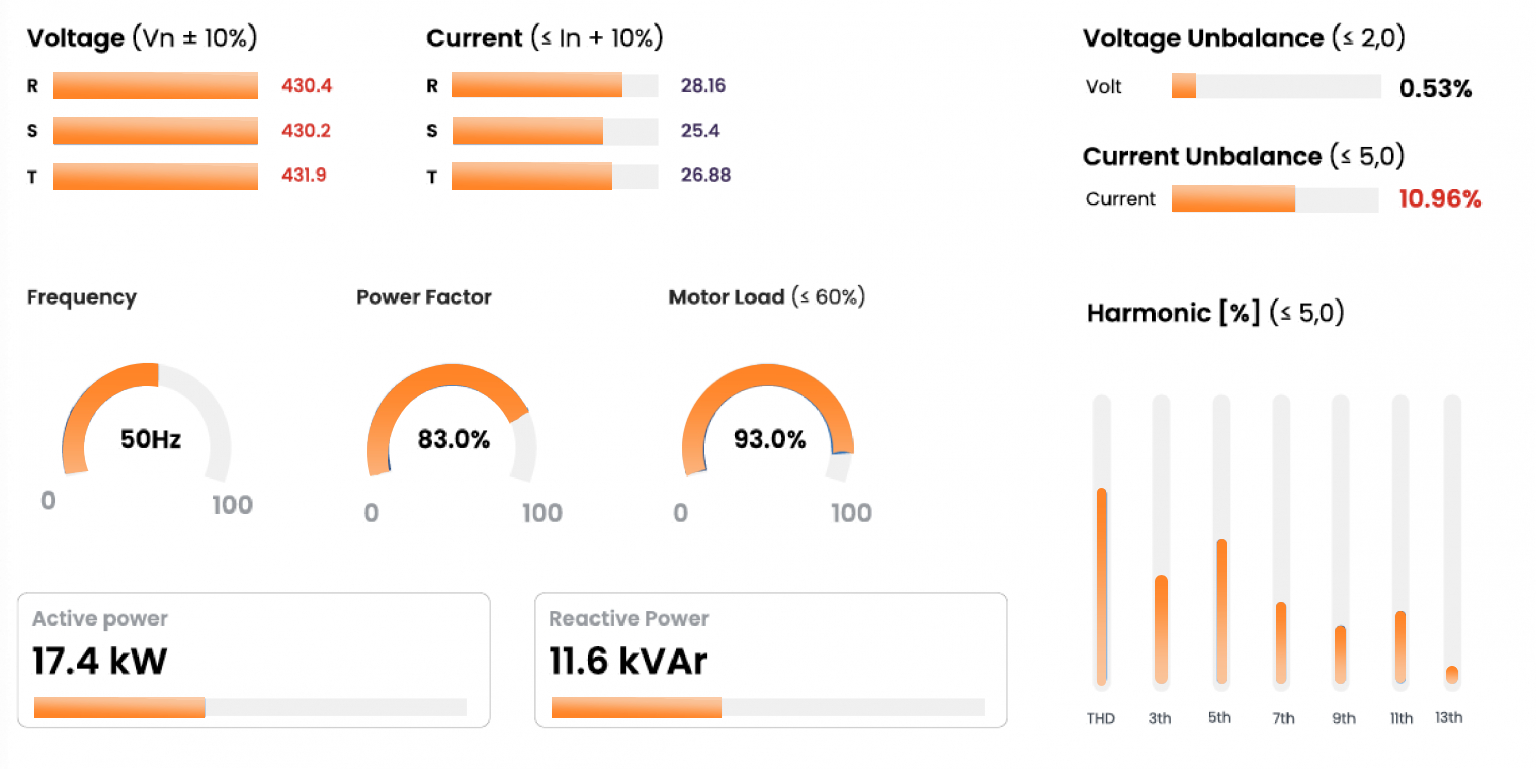- Ranipet
- Sivakasi
- Karur
- Udhagamandalam
- Hosur
The Artesis e-MCM is a powerful online condition monitoring, predictive maintenance and power meter tool intended for critical AC rotating equipment. The patented machine learning algorithm of e-MCM enables comprehensive fault detection up to 6 months in advance. With around the clock monitoring and real-time model-based voltage and current analysis, e-MCM can detect electrical, mechanical as well as process faults of fixed, variable speed motors and generators while providing all the benefits without the high complication and cost of traditional systems.
Motor Condition Monitoring Without Sensors
Artesis E-MCM monitors the condition of equipment driven by an electric motor, effectively using the motor itself as a sophisticated transducer and provides clear information for fault detection, diagnostics, time to failure and corrective actions.
Comprehensive Fault Coverage
Online Condition Monitoring
Automated Fault Diagnosis
Onliy Viable Solution for Hard to Reach Motors
Early Fault Detection
Online Power Monitoring
Award Winning Technology
Effects Of Faults On Energy Efficiency

Ease of Use
The automated fault diagnosis feature of e-MCM makes it very simple to use by the maintenance personnel. Rather than overwhelming the end-user with raw signals and data, e-MCM provides processed data results in an actionable form. The system requires minimal operator intervention for set-up and operation and provides clear indication of the nature and severity of developing faults both locally to the monitored equipment and remotely
Real-Time Monitoring
e-MCM constantly takes measurements and compares them with its reference condition, in order to assess the severity and type of any developing fault. It is able to recognize abnormalities in a wide range of operating states and is even able to extend its self-learning process when it recognizes that it has moved beyond its original learning limits. This allows e-MCM to achieve very sensitive detection of faults without false alarms


Ease of Maintenance Planning
Remote monitoring and reporting services contribute to the development of a sustainable predictive maintenance (PdM) system in the plant without additional workload undertaken by the crew.
Simple Installation
e-MCM installation requires only three-phase voltage and current connection via low-cost current transformers (CT) and voltage transformers (VT) (if needed). It is usually located at the motor control cabinet, requiring very short cable runs and avoiding the need to install equipment in remote or hazardous areas. When first switched on, e-MCM carries out an automatic self-learning process during which the normal operating condition of the equipment is established. Advanced analysis techniques ensure that this training takes account of variables like speed and load, and that existing faults do not result in training errors.

e-MCM monitors your rotating equipment continuously, constantly taking measurements and comparing them with the digital twin it created during the self-learning process. Its unique machine learning algorithm allows it to recognise normal operation in a wide range of conditions, such as different speeds or loads- allowing tight control without false alarms. lf e-MCM identifies a new operating state not experienced during the self-learning phase, it gives you the option of including this state in all future monitoring.
Stator
Interturn short circuit (the early phase of turn-to-turn short circuit)
Phase-to-phase short circuit
Impedance unbalance or shift
Insulation degradation
Soft foot (stator deformation)
Loose foot (bolt loose)
Winding overheating
Winding looseness
Lamination looseness
Rotor
Unbalance (fan, shaft deformation)
Thermal bow (unbalance)
Static and dynamic eccentricity
Rubbing
Severe porosity
Angular and parallel misalignment
Broken, damaged and loose rotor bars
Overheating
Winding looseness
Lamination looseness
Damping cage degradation
PM degradation
Bearing
Outer & inner race pitting
Ball/roller wear
Cage/raceway deformation
Cocked bearing
Grease contamination
Over greasing
Bearing creep/skidding
False & true brinelling
Plain bearing oil whirl and whip
Plain bearing radial preload
Plain bearing rotor rub
Machine Faults
Outer & inner race pitting
Ball/roller wear
Cage/raceway deformation
Cocked bearing
Grease contamination
Over greasing
Bearing creep/skidding
False & true brinelling
Plain bearing oil whirl and whip
Plain bearing radial preload
Plain bearing rotor rub
Transmission Faults
Broken teeth/claws
Looseness
Excessive clearance
Eccentricity
Unbalance
Mesh quality
Backlash
Misalignment
Assembly phase problems
Hunting tooth frequency
Process Faults
High energy consumption
Low efficiency
Cavitation in pumps
Flow turbulence in fans, blowers
Filter and heat exchanger fouling
Lubrication
Oversize/undersize motors
Compressors
Fans
Pumps
Conveyors
Generators
Motor Driven Equipment
AHU
Mixer

TAMIL NADU
ANDHRA PRADESH
KARNATAKA
KERALA
TELANGANA
MAHARASHTRA
GOA
GUJARAT
UTTAR PRADESH
DELHI
RAJASTHAN
PUNJAB
HIMACHAL PRADESH
HARYANA
UTTARAKHAND
WEST BENGAL
ODISHA
JHARKHAND
BIHAR
MADHYA PRADESH
CHHATTISGARH